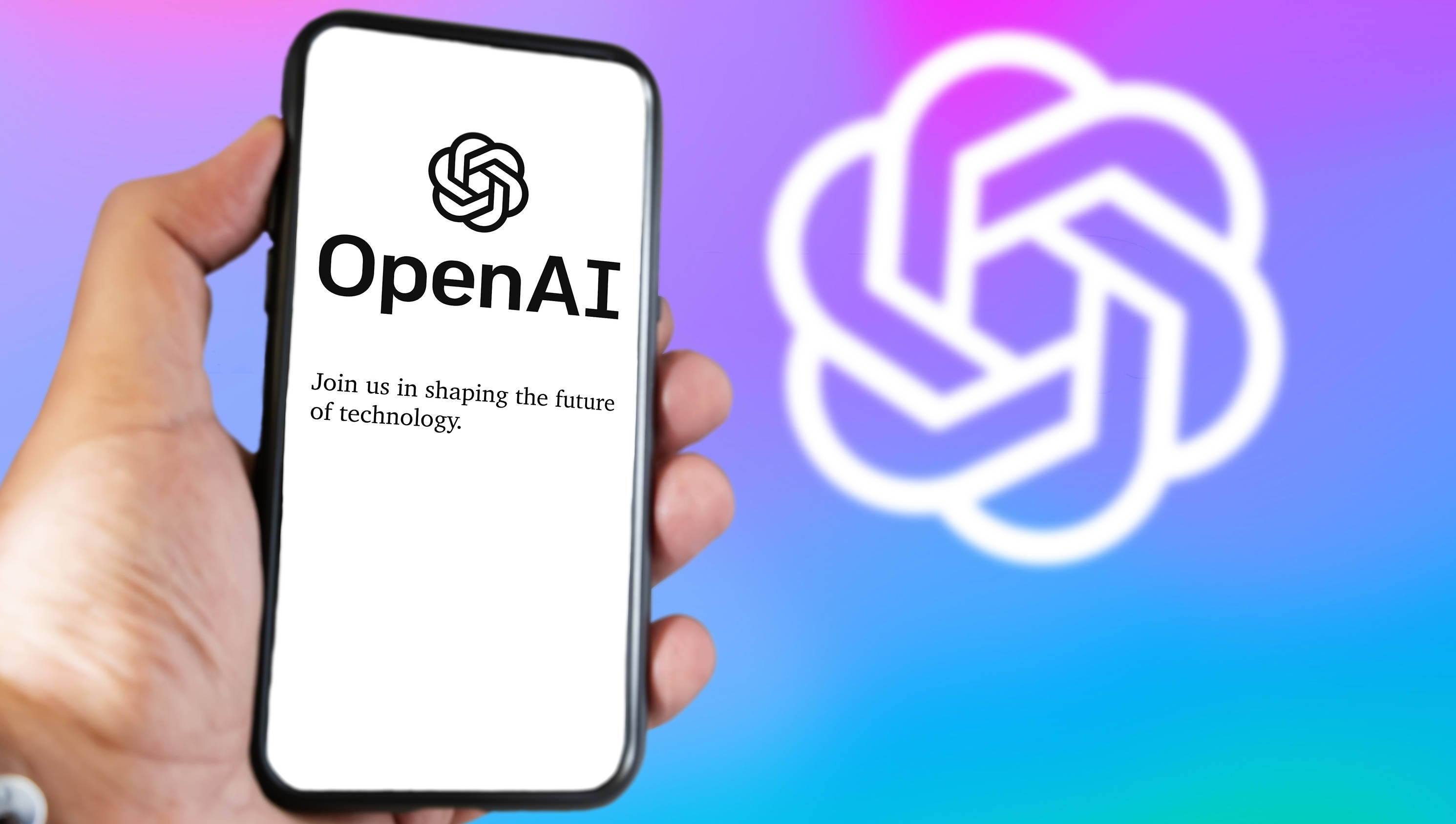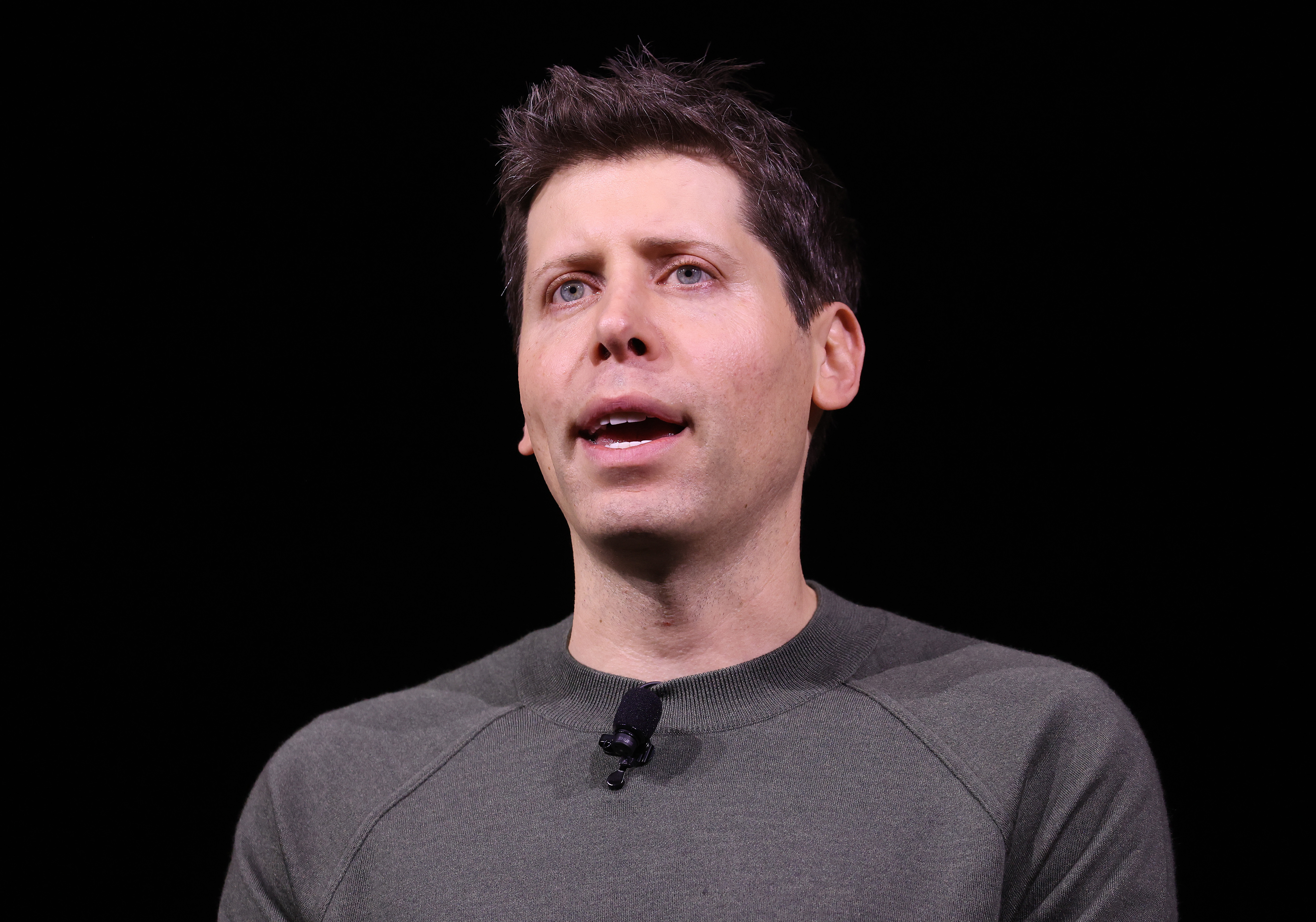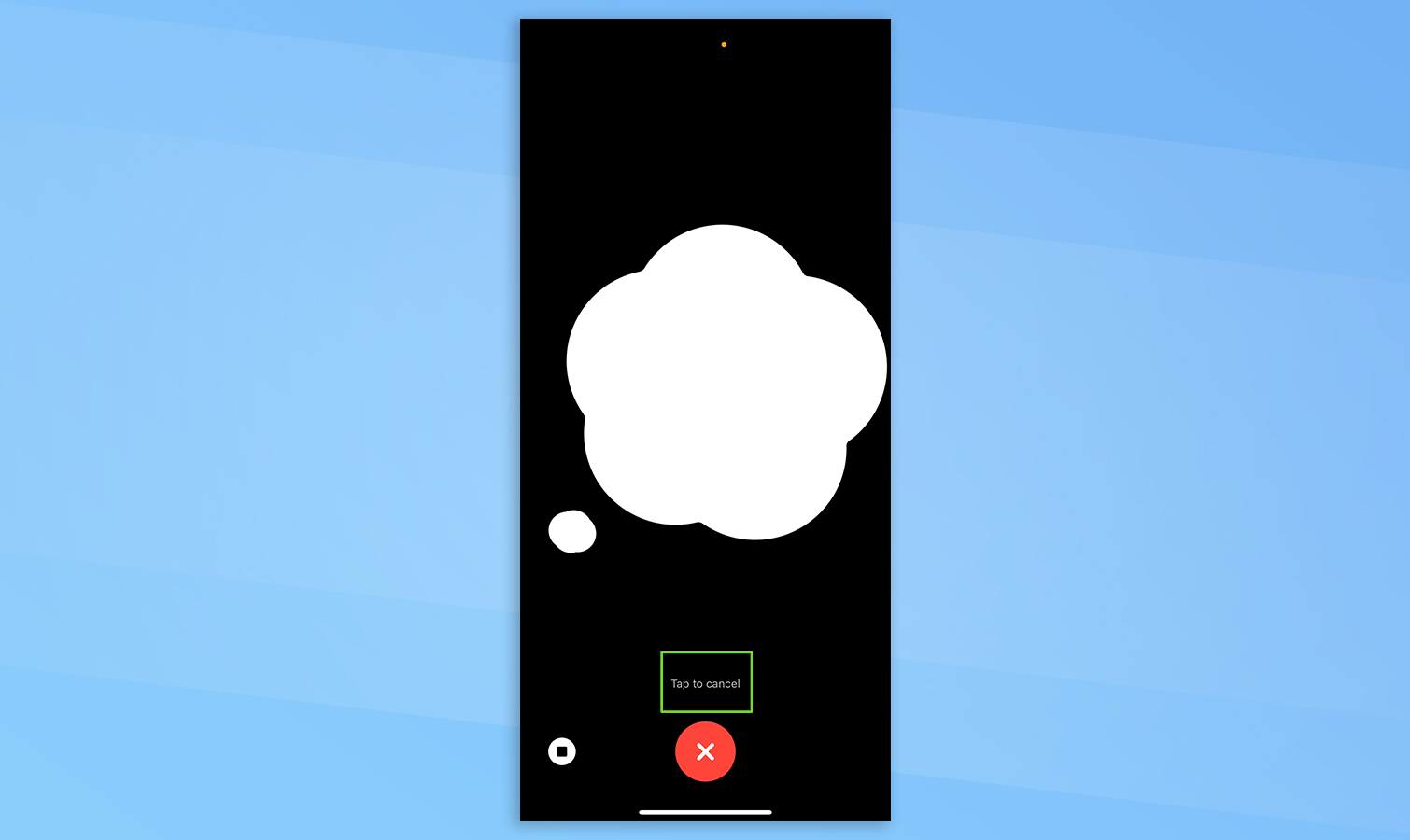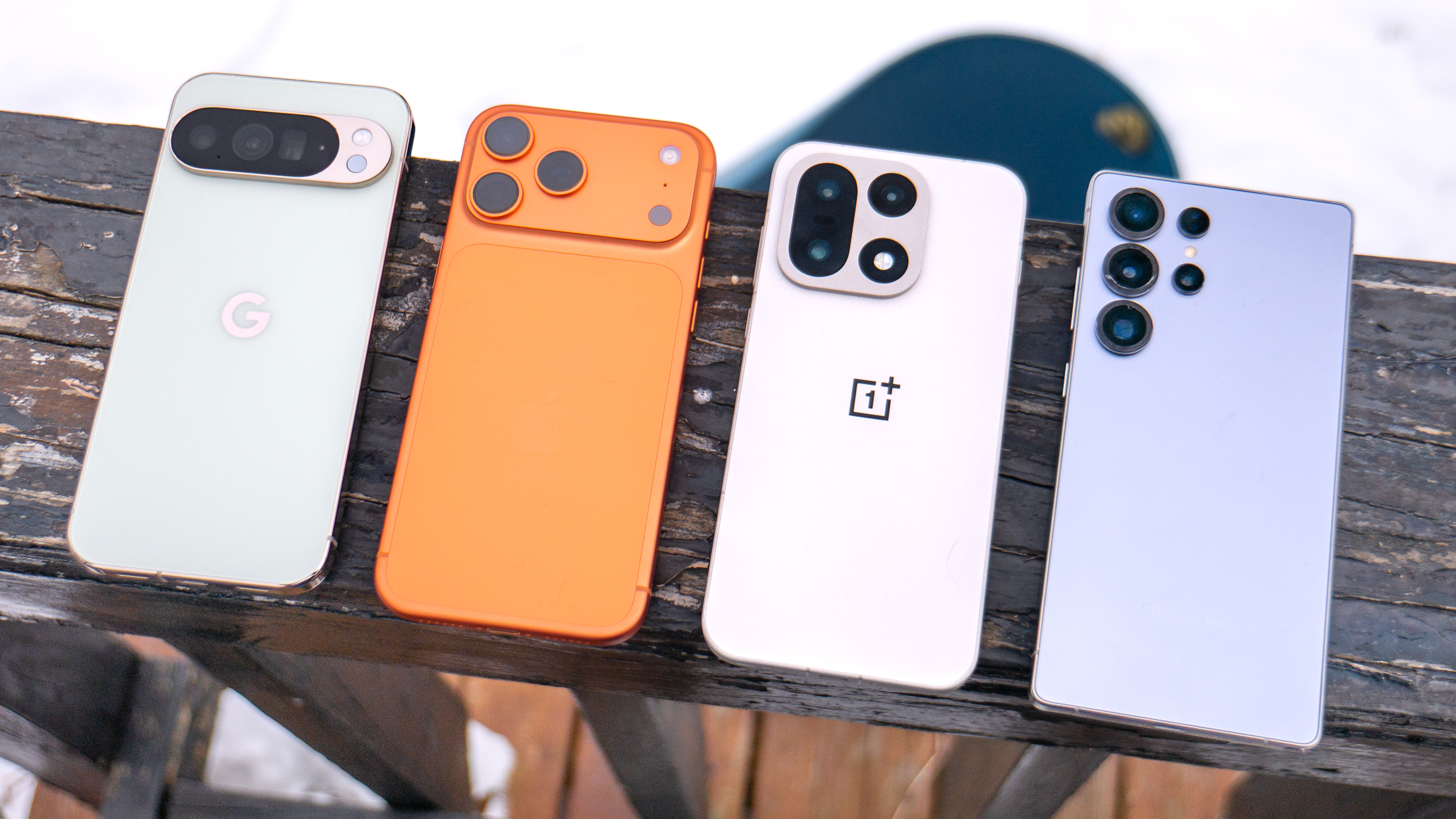Is OpenAI about to take on Alexa and Siri? ChatGPT maker files trademark for Voice Engine
Trademark covers voice assistants

Here at Tom’s Guide our expert editors are committed to bringing you the best news, reviews and guides to help you stay informed and ahead of the curve!
You are now subscribed
Your newsletter sign-up was successful
Want to add more newsletters?

Daily (Mon-Sun)
Tom's Guide Daily
Sign up to get the latest updates on all of your favorite content! From cutting-edge tech news and the hottest streaming buzz to unbeatable deals on the best products and in-depth reviews, we’ve got you covered.

Weekly on Thursday
Tom's AI Guide
Be AI savvy with your weekly newsletter summing up all the biggest AI news you need to know. Plus, analysis from our AI editor and tips on how to use the latest AI tools!

Weekly on Friday
Tom's iGuide
Unlock the vast world of Apple news straight to your inbox. With coverage on everything from exciting product launches to essential software updates, this is your go-to source for the latest updates on all the best Apple content.

Weekly on Monday
Tom's Streaming Guide
Our weekly newsletter is expertly crafted to immerse you in the world of streaming. Stay updated on the latest releases and our top recommendations across your favorite streaming platforms.
Join the club
Get full access to premium articles, exclusive features and a growing list of member rewards.
OpenAI may have Apple, Amazon, and Google in its sights for its next big artificial intelligence push, taking on the voice assistant market with a new Voice Engine tool.
While ChatGPT does have a voice-friendly interface on mobile — and recently introduced a way to have it speak its responses on desktop — a new trademark application from OpenAI for the words Voice Engine relates specifically to building digital voice assistants.
It is now possible to swap out the default voice assistant on Android. Apple seems to be in talks with a range of AI companies over the future of artificial intelligence on the iPhone, so this could be a preemptive move from OpenAI building on a potential new market.
Apple is also rumored to be opening a dedicated AI App Store with the next major upgrade to iOS, which would create a new market for AI-powered assistants.
Sam Altman, OpenAI CEO said there are "many different things" being released this year. While it is expected this will include Sora, the AI video tool it could include a new AI voice system.
What do we know about Voice Engine

We don’t know much about Voice Engine or whether it will even be a product. OpenAI hasn’t commented publicly on it, so all we have is rumor and the trademark filing.
While Voice Engine could be a new model built specifically for speech applications, it is also likely this is part of an enterprise play for OpenAI. It could be building a high-quality speech system that would let companies build out more efficient call center bots.
Get instant access to breaking news, the hottest reviews, great deals and helpful tips.
It sounds a lot like all the pieces you'd need for a fully functional, fully interactive AI voice assistant that can not only handle complex tasks but chat naturally and even take phone calls on your behalf.
The new trademark application was filed with the U.S. Patent and Trademark Office last week. While an application doesn't necessarily mean it will result in a product, this does line up with the wider market shifting more to voice and OpenAI's direction to targeted models.
The filing covers the creation of software used for building digital voice assistants, audio generation from text prompts, voice command processing, and voice service delivery.
The full application covers the development of voice service delivery, using AI for text or-voice and text-to-audio, natural language, and speech processing, generating audio and voice from a prompt (text, speech, visual, image), processing voice commands, speech recognition, and building digital voice assistants.
That sounds a lot like all the pieces you'd need for a fully functional, fully interactive AI voice assistant that can handle complex tasks, chat naturally, and even take phone calls on your behalf.
Where does GPT-5 fit in this?

OpenAI released GPT-4 a year ago. At the time this was a groundbreaking generative AI model that powers ChatGPT and Microsoft Copilot.
The company also started training GPT-5 late last year, resulting in speculation over its release date. Altman told podcaster Lex Fridman, "We will release an amazing new model this year," but wouldn't confirm whether this was GPT-5 or some precursor.
He also said there would be "many different things" released over the coming months. According to OpenAI CTO Mira Murati, this will include the AI video platform Sora.
There is some speculation on social media that Sora and this new Voice Engine are different modal interfaces for GPT-5.
It is very likely that GPT-5 will be a true multimodal model, able to understand video, images, speech, text, and code — as well as generate all those content types.
Voice Engine could be a new Assistant
Given the trademark's description, it is also possible that Voice Engine could be a new voice assistant, merging Siri, Alexa, or Google Assistant's wider capabilities with ChatGPT's reasoning and natural language capabilities.
Google has already started upgrading Gemini to work in that way, Apple is rumored to be building a new version of Siri with large language model functionality, and Amazon is already testing Alexa Plus with similar underlying skills.
OpenAI may offer Voice Engine to power such systems in the future or as an alternative interface to ChatGPT that can run on smart speakers, phones, or even headphones.
Or it could just be OpenAI playing it cautious with trademarks. It had a bid to protect GPT rejected, so it now has filed trademark applications for GPT-5, 6, and even GPT-7. The latter includes music generation, converting text and data to code, and writing code from scratch.
More from Tom's Guide
- Google’s new VLOGGER AI lets you create a lifelike avatar from just a photo
- Apple could bring Google Gemini to the iPhone for AI tasks
- I gave Claude, ChatGPT and Gemini a photo of ingredients to see which came up with the best recipe

Ryan Morrison, a stalwart in the realm of tech journalism, possesses a sterling track record that spans over two decades, though he'd much rather let his insightful articles on AI and technology speak for him than engage in this self-aggrandising exercise. As the former AI Editor for Tom's Guide, Ryan wields his vast industry experience with a mix of scepticism and enthusiasm, unpacking the complexities of AI in a way that could almost make you forget about the impending robot takeover.
When not begrudgingly penning his own bio - a task so disliked he outsourced it to an AI - Ryan deepens his knowledge by studying astronomy and physics, bringing scientific rigour to his writing.
 Club Benefits
Club Benefits















